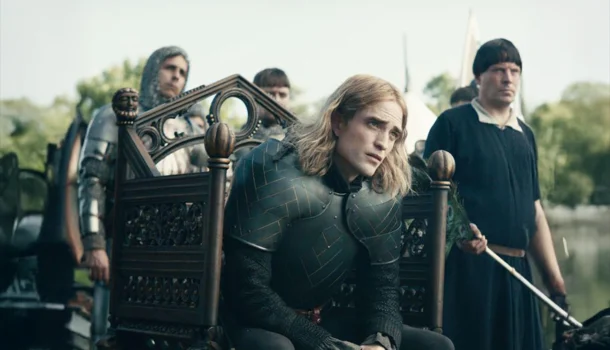There’s something brutally contemporary about watching a young man struggle to find his voice amid the deafening echo of others’ expectations. When that young man is Timothée Chalamet, the tension between image and substance sharpens. Celebrated early on as a generational aesthetic icon, Chalamet seems to understand that beauty alone is a trap. “The King”, directed by David Michôd, emerges as a bold and strategic response to that dilemma: a dark descent into Shakespearean tradition designed to shatter any superficial reading of his talent.
The adaptation, co-written by Michôd and Joel Edgerton, doesn’t settle for bringing Shakespeare’s texts to the screen; it shifts the tone entirely. By stripping away Elizabethan flourishes in favor of a stark, restrained language, the film aligns itself more with present-day angst than with theatrical grandeur. Here, Henry V is portrayed as a young man already drained before wearing the crown — and Chalamet imbues him with a kind of desolation that demands observation rather than empathy. The spoiled heir becomes a reluctant tactician, and the crown, instead of glory, becomes a sentence.
The film anchors itself more in atmosphere than in plot turns. Its shadow-soaked cinematography and avoidance of spectacle construct an England that seems to bleed quietly under the weight of war. The Battle of Agincourt is no triumphant climax, but a claustrophobic plunge into mud, flesh, and fear. Michôd rejects traditional heroism: his soldiers are collapsing bodies, his camera chases not choreography but despair. It’s a visual strategy that confronts the viewer with power’s true form — dirty, unstable, and dehumanizing.
Within this oppressive machinery, Chalamet swings like a pendulum between vulnerability and coldness. His portrayal avoids the typical royal solemnity; it’s more inward than exalted, more wandering than assertive. Echoes of Britain’s theatrical giants are present, but Chalamet operates through subtraction, not imitation. He hints, rather than proclaims, at the presence of a young man who grasps the absurdity of the throne even as he’s forced to occupy it. There’s a trace of Hamlet, yes — but also its antidote.
“The King” sidesteps the traditional epic formula by treating destiny as an unavoidable burden. Joel Edgerton’s Falstaff isn’t comic relief, but a figure that marks the absence of heroes. His brief presence offers the young king a fleeting glimpse of humanity, soon closed off by the weight of sovereignty. Robert Pattinson, in contrast, embraces theatricality as the French dauphin — a choice that clashes with the cast’s brutal sobriety. Yet the contrast works, exposing war as performance on one side, and condemnation on the other.
Perhaps the film’s greatest achievement lies in turning slowness into resistance. By refusing narrative haste and flashy emotion, “The King” compels the viewer to sit with silence, to notice what happens between scenes. It’s within these pauses that Chalamet shapes a character who doesn’t captivate through grandeur but through restless humanity. His Henry V feels less like a historical figure and more like a mirror of modern dilemmas: the pressure to perform, the weight of others’ expectations, the erasure of self for a role never chosen.
More than a film about royalty or warfare, “The King” becomes a meditation on identity formation in an age of collapse. Its power lies not in grandiose scenes, but in how it handles emptiness with density. What lingers isn’t a memory of battle or the image of a crown, but the insistent presence of an actor who resists easy answers — and in doing so, redraws the contours of his era onscreen. In “The King”, Chalamet doesn’t assert — he questions. And it’s precisely that disquiet that makes the film as essential as it is overlooked.
Film: The King
Director: David Michôd
Year: 2019
Genres: History/War/Epic
Rating: 9/10

